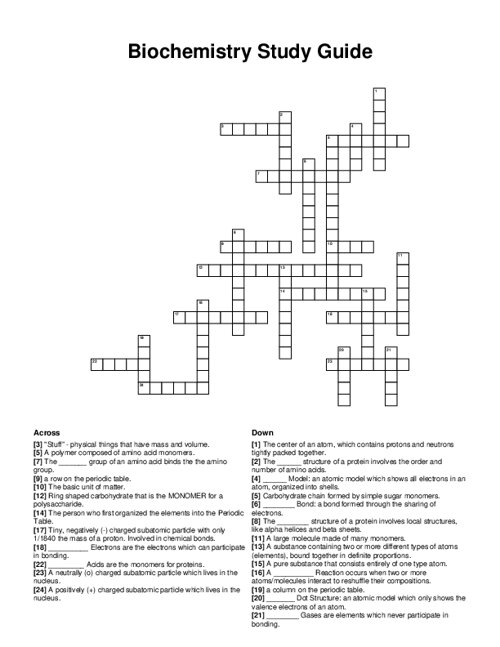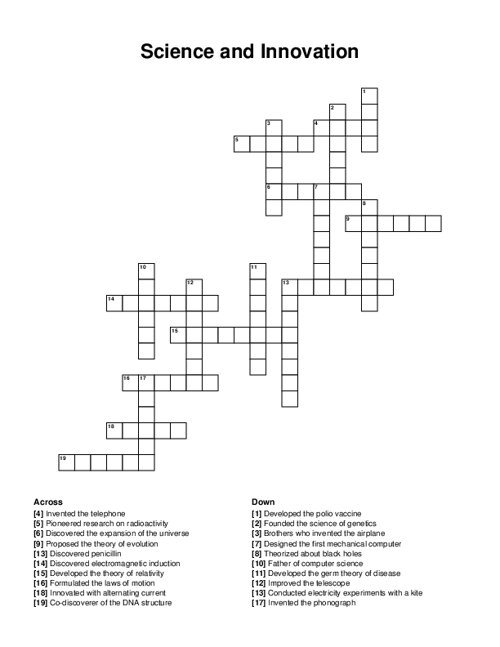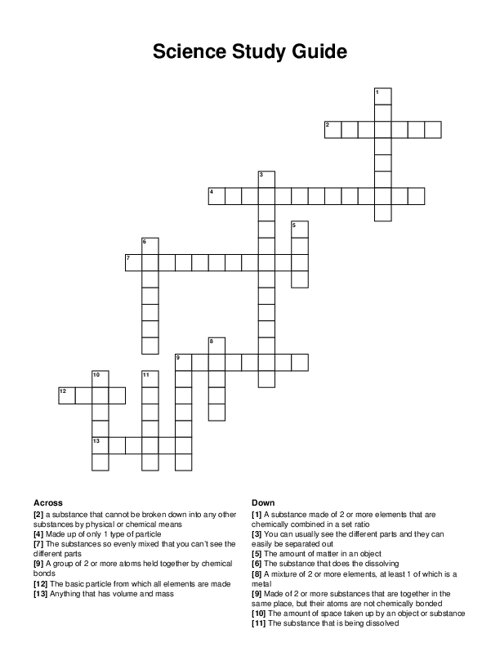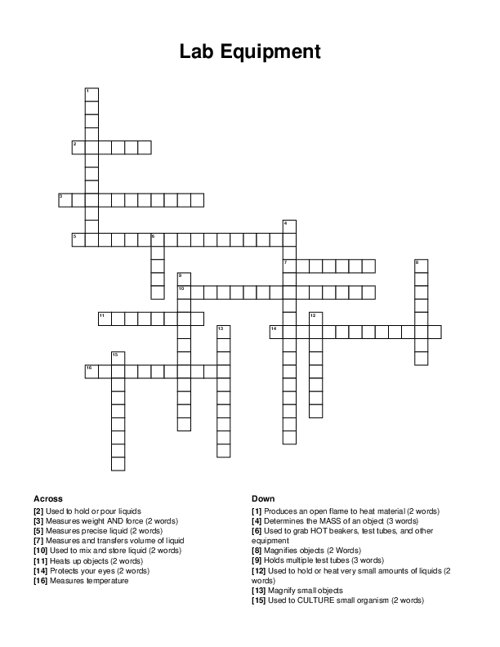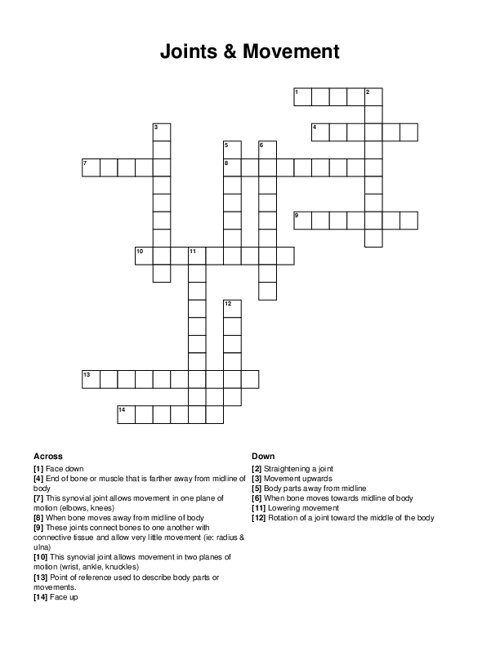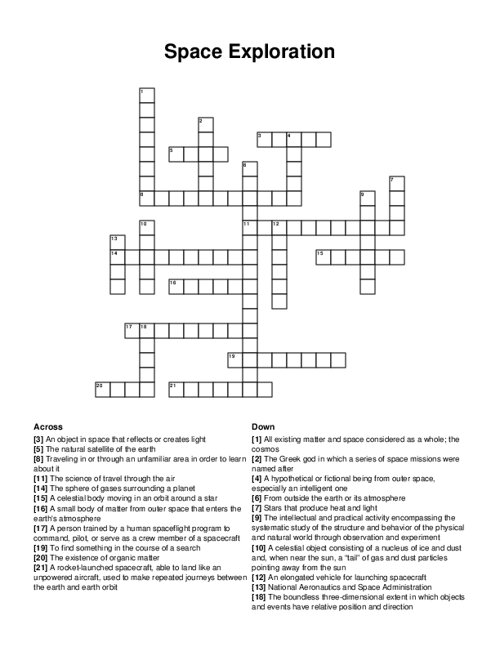Biochemistry Study Guide Crossword Puzzle
Download and print this Biochemistry Study Guide crossword puzzle.
Related puzzles:
QUESTIONS LIST:
- monosaccharide: ring shaped carbohydrate that is the monomer for a polysaccharide.
- electron: tiny, negatively (-) charged subatomic particle with only 1/1840 the mass of a proton. involved in chemical bonds.
- protein: a polymer composed of amino acid monomers.
- mendeleev: the person who first organized the elements into the periodic table.
- element: a pure substance that consists entirely of one type atom.
- carboxyl: the _ group of an amino acid binds the the amino group.
- group: a column on the periodic table.
- valence: _ electrons are the electrons which can participate in bonding.
- compound: a substance containing two or more different types of atoms (elements), bound together in definite proportions.
- period: a row on the periodic table.
- polysaccharide: carbohydrate chain formed by simple sugar monomers.
- bohr: _ model: an atomic model which shows all electrons in an atom, organized into shells.
- neutron: a neutrally (o) charged subatomic particle which lives in the nucleus.
- lewis: _ dot structure: an atomic model which only shows the valence electrons of an atom.
- matter: "stuff” - physical things that have mass and volume.
- noble: _ gases are elements which never participate in bonding.
- amino: _ acids are the monomers for proteins.
- secondary: the _ structure of a protein involves local structures, like alpha helices and beta sheets.
- covalent: _ bond: a bond formed through the sharing of electrons.
- nucleus: the center of an atom, which contains protons and neutrons tightly packed together.
- reaction: a _ reaction occurs when two or more atoms/molecules interact to reshuffle their compositions.
- primary: the _ structure of a protein involves the order and number of amino acids.
- atom: the basic unit of matter.
- polymer: a large molecule made of many monomers.
- proton: a positively (+) charged subatomic particle which lives in the nucleus.
